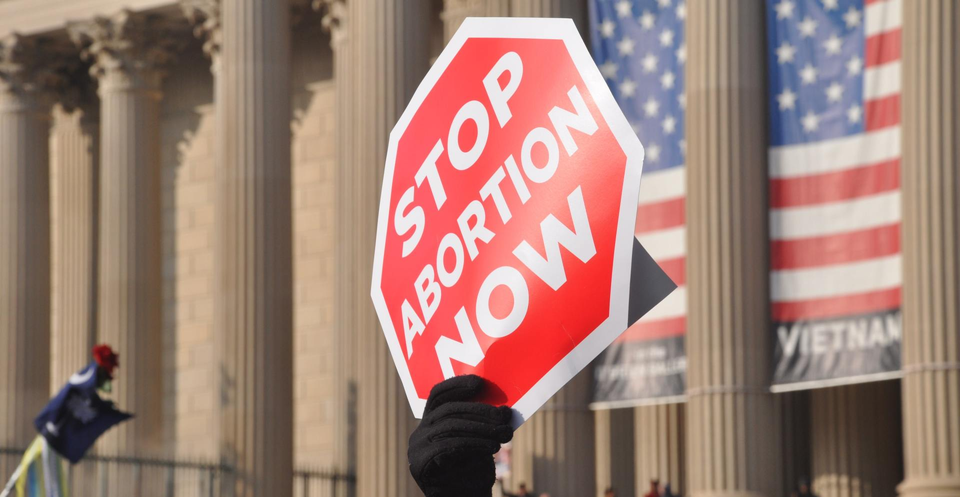Life in a Culture of Death
Mary washed Jesus’ feet (Mark 14:9). She is remembered. Euodia and Syntyche debated issues (Philippians 4:3). They’re remembered. God remembers every true Christian by name (Revelation 3:5, 20:15). The Scriptures well remember two other ladies, Shiphrah and Puah.
Shiphrah and Puah’s names are presented prominently in the Hebrew sentence that comes to our English-reading eyes in Exodus 1:15. There were simpler ways to convey their presence to the first hearers. But unlike the elders of Israel and the pharaohs of Egypt, the author gives dazzling specificity to their names. Before Moses is even mentioned in the Exodus narrative, as if to add emphasis, these names are mentioned: Shiphrah and Puah. They made a name for themselves by protecting the most vulnerable among us.
These are remembered for what they were unwilling to do rather than what they did do. And, sometimes, that’s okay. When the pundits write of us as “anti-abortion” rather than “pro-life,” we accept it. Why? Because we know the game. Sometimes it’s better to be known for where we draw the line in the sand—where we won’t go—what we won’t do. Here are the things Shiphrah and Puah wouldn’t do.
They would not be bitter.
Shiphrah and Puah were 15th century B.C. Hebrew midwives which likely meant they were infertile. In a civilization that (wrongly) placed a woman’s value on her ability to bear children, these women were socially awkward. The upshot to their likely infertility is that they were prime candidates for midwifery employment. They would have the time to work odd hours in crisis moments as labor and delivery nurses. They would have the time because they didn’t have children of their own. They would work around situations that constantly reminded them of their own inadequacy—the births of children. But they weren’t bitter. They would not be bitter.
Shiphrah and Puah were ethnic minorities. They did not have the freedom to travel back home to Canaan—their Promised Land. They did not come and go as they pleased. Their faith in the promises God gave to Abraham, promises of land and blessing and offspring, were only coming true in slow, small, part. And even the part that was coming true (i.e., numerous offspring) wasn’t coming true for them personally. These ethnic minorities were macro-aggressed—not micro-aggressed. These were ethnic minorities with ever-diminishing rights. The situation was not good.
They would not be bitter.
Shiphrah and Puah were commanded to oversee partial birth abortions. They were asked to do an ancient version of Kermit Gosnell—dismantle unwanted babies even as the babies screamed for life. You should prepare now to watch the movie coming out this fall about America’s most prolific serial killer, titled, “Gosnell.” The authors share: “Gosnell killed more people than Gary Ridgeway, John Wayne Casey, the Zodiak Killer, and Ted Bundy combined. In a 30 year killing spree it is thought he killed many thousands of babies” The authors of Genesis exercise narrative restraint in telling the Hebrew story when they simply write, “But the midwives feared God and did not do as the king of Egypt commanded them” (Exodus 1:17). They let the children live. They were pro-life, or anti-abortion—if you prefer to state it in the negative.
It wasn’t just that they refused to make someone else’s baby the object of angst—the outlet of their bitterness for not having children of their own. It’s also that these women were willing to forego their civil status for them. Shiphrah and Puah civilly disobeyed the governing authorities, risking it all, throwing caution to the wind, in order to defend the cause of life. This price was a far greater one to pay than an incumbent congressman who might risk re-election at the expense of doing what he campaigned to do in the cause of life. Shame on us for pretending to be politically calculated when we are only cowards. Courageous leadership stands up for the unborn. Courageous leadership does what it says it will do. Courageous leadership only calculates until he can throw aside caution for conviction—and leverage credibility for compassion. Courageous leadership like that of Shiphrah and Puah will leverage their last bit of standing to protect the least of these. And you should too.
They would be better. Life is moral, not political. If we get into a discussion on moral issues, my guiding questions will orbit around your earthly view of life. For candidates seeking office, how you answer issues of life, even Right to Life questionnaires, will tell us a lot about your worldview. The first, second, third..and possibly eighth question, if you get that far in conversation, with a candidate for public office, should seek to clarify the candidate’s view on the cause of the unborn. Why? Because until we can get this ancient moral precept correctly clarified, we have little business moving forward to other truly political issues. I’m less concerned if you are a Democrat, Republican, Independent, Green Party Candidate or other. I’m more concerned that you are consistently pro-life—living out your conviction for the cause of the unborn. When you think about it, life is an easy decision, really. For Shiphrah and Puah, issues of life came before many other important issues—issues of oppression and marginalization and bureaucracy and gender and economy. Life became a first-order issue for them and it can be for you too. Other issues eventually got addressed (e.g., Ex. 1:21) and the midwives got blessed. But issues of life receive prime of place, they come first in our order of societal priorities.
So write your legislator. Volunteer at a Pregnancy Resource Center. Secure resources to share from an area pro-life organization. Teach your kids, your church, your friends. Foster. Adopt. Pray. Do what you can with what you have where you are. Be a heroine. Make a name for yourself the right way. Hold your elected officials and clergy accountable. Rightly reflect the name you claim with Christ-ian. You’ll be a blessing to people of all parties. Choose life.











